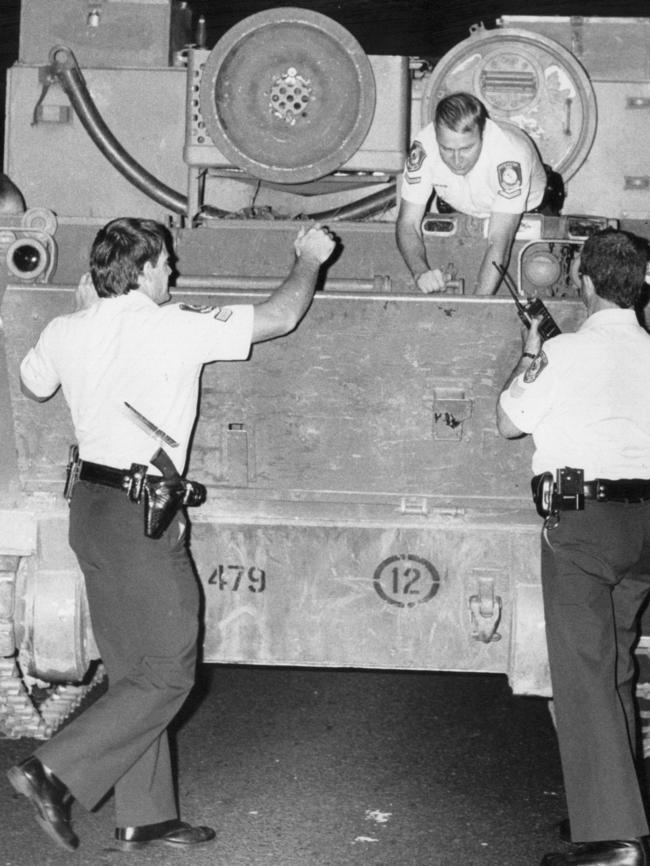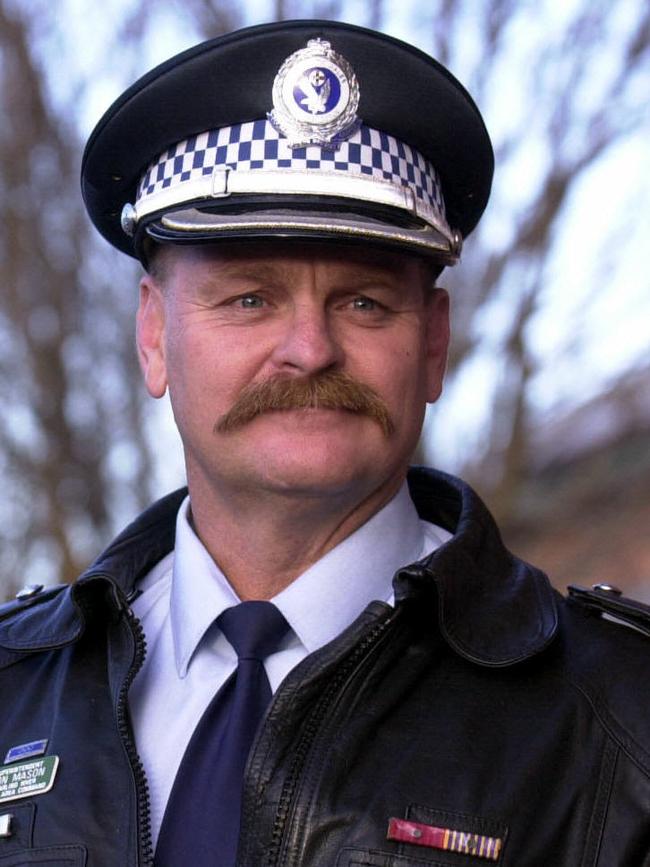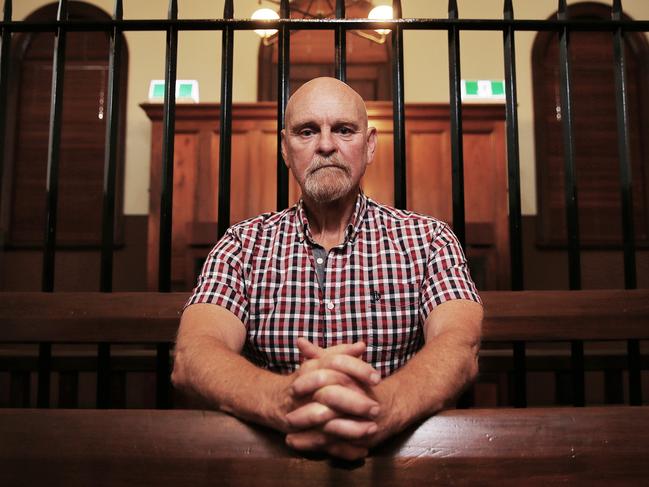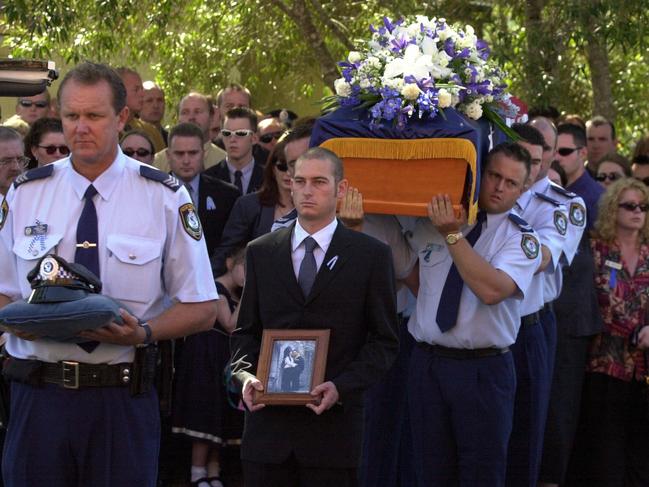Legendary cop Ron Mason driven by murder of grandmother
He joined up at 16 and gained a reputation as one of the toughest cops to ever wear the NSW Police uniform, but it was a shocking crime in his childhood that inspired Ron Mason to stand up for victims — and stand up to the bad guys. LISTEN TO THE POLICE TAPE PODCAST
Police Tape podcast
Don't miss out on the headlines from Police Tape podcast. Followed categories will be added to My News.
To many Ron Mason was simply one of the toughest cops to ever wear the blue uniform of the NSW Police Force.

Tales of his toughness and strength began well before he dragged himself onto a moving armoured vehicle stolen by an armed soldier and shot him dead on Sydney Harbour Bridge.
That was just one of many stories which went down in folklore throughout his career.
But what perhaps is largely unknown is why Mason joined the police as a 16-year-old in 1971, and why he believed he was born for the job.
He was determined to join the force from the age of 11 when his grandmother was murdered by her de facto partner.
“Domestic violence, murder … I set my mind on joining the NSW Police and everything I did from that time was aimed toward that career,” he said.
LISTEN NOW: Ron Mason on the Bathurst riots, stopping a tank and why he had to play the tough guy. WARNING: Graphic content
MORE FROM POLICE TAPE
‘Won’t save lives’: Bitter pill for drug testing advocates
Contract to kill: Gang’s crazy price on two cops’ heads
Shootings: Inside the crime family feud that terrorised a city
‘He choked me’: Hutchence lover’s shocking revelation

Mason said he always felt there were people he needed to stand up for and stand up to from an early age, and it was that attitude that was key to his entire career.
“You don’t have time to fear,” he said.
“I mean, I was brought up that way my whole life. I was taught how to box when I was five years old by my father — punching bags and things like that.
“The first time I got in trouble at school was when I was five years old and my parents got called down because I stood up for this other five-year-old boy, who was getting bullied by these seven-year-old boys.
“I believe that when I responded in a different way and they lost, they complained about it. So it’s like, if you do things that are unexpected, do things quickly and respond quickly in the appropriate way, you’ll achieve results.
“I’ve been in (a) situation where I led a charge on people at Bondi when there was a riot. There were three other police with me, and I just had to convince them to charge these 50 people throwing rocks, bricks and bottles and they did. And, guess what, all those people scattered and (are) probably still running today.”

Mason was given the nickname “Killer’’ after the Harbour Bridge incident. It was a name he did not love, but unfortunately for him it stuck throughout a career defined by his fearless spirit.
While stationed in Broken Hill, Mason was trying to win the trust of the local indigenous community without luck. Then when there was a visiting rodeo he took up a challenge to ride a bull.
He held on to Brahman bull for about seven seconds before falling to the ground, tearing his bicep and breaking his arm in three places.
The next day he turned up for work and never took a day off. The story went round the local community, earning him enormous respect.


In another incident in Sydney, Mason was called to an eastern suburbs pub where there was trouble brewing with local hooligans, now the infamous gang known as the Bra Boys.
On the Police Tape podcast, he tells how he had no option but to punch out one of their leaders and founding members, Tony Hines.
Mason was also a specialist weapons trainer at the Tactical Response Group — now the Tactical Response Unit, which responds to everything from brawls to terror attacks.
But for all the tales of his toughness, some cases had a massive impact.

Mason was the commander of Mascot police station when senior constable Glenn McEnallay was shot dead after stopping a stolen car in 2002.
“I’ve been involved in a few police deaths before but never anything like this,” the 40-year police veteran said, his voice cracking with emotion.
And then there was an investigation into the death of a six-month-old baby, initially believed to be a cot death.
“My elder son was six months (at the time) and that was totally confronting … not only for me, but how I treated my children,” Mason said. “I virtually didn’t sleep for weeks — (I’d) have a little bit here, little bit there — I was worried about listening and my son, (to) make sure he’s still breathing.”
Originally published as Legendary cop Ron Mason driven by murder of grandmother
